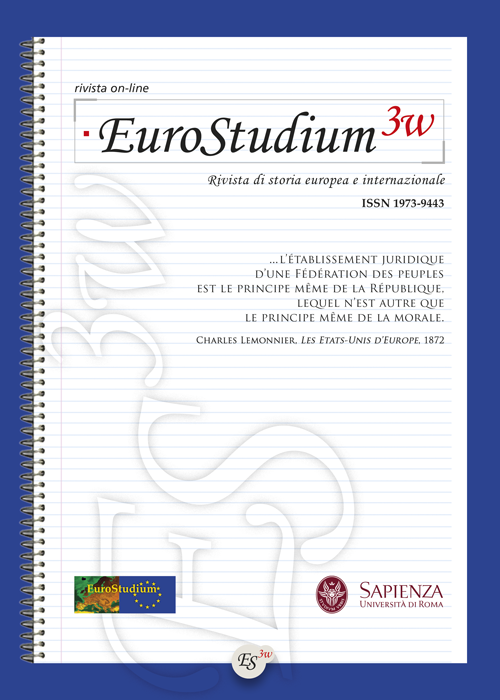William Penn after 300 Years: his Life and Legacy
Parole chiave:
William Penn, Pacifism, Federalism, European ParliamentAbstract
The principles of pacifism and federalism were central to William Penn’s career. His Quaker belief in liberty of conscience and his experience of religious violence in England and Europe committed Penn to peace – within as well as between nations – and inspired both his founding of Pennsylvania and his proposal for a European Parliament. Peace was a fundamental commitment of Penn’s not only because of the Quaker peace testimony, but also because he considered it a universal human aspiration. Thus, he always sought to build bridges beyond the Quaker community by appealing to broader, shared values, and he believed that well-designed political institutions that protected fundamental rights could offer a way to channel human energies in constructive, not destructive, directions. Drawing on my forthcoming biography of Penn, I consider some of the significant episodes in his life that prepared him to engage in peace building, whether it be an American society with liberty of conscience at its core or a European Parliament where nations could seek resolution of their disputes against each other.##submission.downloads##
Pubblicato
2022-03-02
Fascicolo
Sezione
Sezione monografica
Licenza
Copyright (c) 2022 Eurostudium3w

Questo lavoro è fornito con la licenza Creative Commons Attribuzione - Non commerciale - Condividi allo stesso modo 4.0 Internazionale.


